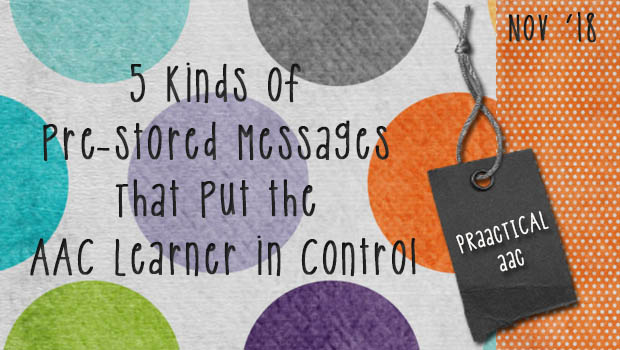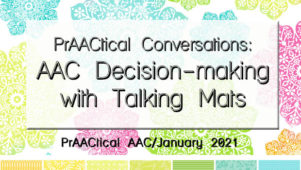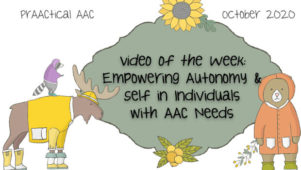5 Kinds of Pre-stored Messages That Put the AAC Learner in Control

Here’s a conundrum. Personal autonomy is an important component of happiness and well-being, yet it may be hard to come by for people who use AAC. How can we give some power back to our AAC learners so that they have more control of their own circumstances?
One way is to provide them with the language that enables them to push back on us and/or assert their own influence on situations. Some individuals have the language in their AAC system already but need instruction and support in learning to say the kinds of things that allow them to advocate for themselves. We can also provide AAC learners with prestored messages that help them stick up for themselves, and teach them when and how to use those. Here are some examples to consider. Take a look and see if there are any that may help your AAC learners achieve more personal autonomy.
- “Please stop and listen.” “I need you to take me seriously.” “Doesn’t my voice matter?”
- “That’s not right.” “It’s not fair.” “I don’t agree with this.”
- “Don’t forget about me.” “I don’t like to be left out.” “Don’t I deserve to try?”
- “Let me decide.” “I want to choose my own.” “I should be able to decide.”
- “It’s in my IEP.” “I’m supposed to get ___.” “Please read my care sheet before you do that.”
Messages alone won’t do the trick, though, so be sure to include relevant instruction on when and how to use them and provide adequate support and practice.
What strategies do you use to support the self-determination of the AAC learners in your life? We’d love to hear about them.
Filed under: Featured Posts, PrAACtical Thinking
Tagged With: control, prestored messages, self-advocacy, self-determination
This post was written by Carole Zangari





3 Comments
I posted a reply to this but it has not been posted….
Doesn’t my voice matter?
Paul, I’m sorry but I don’t see another comment from you. What time did you submit that? I looked for it in the spam filter but couldn’t find it there. I usually try to moderate the comments each evening, but I do fall behind more often than I care to admit and lately it has taken me a while longer to get new comments approved. Anyway, my apologies! Your voice DOES matter.
Hi Carole, the messges now appear in reverse order which rather spoils dramatic effect, but my original point was that putting clearly messages like “Doesn’t my voice matter?” “Don’t I deserve to try?” is passive aggressive and emotionally not the same as somebody constructing the message themselves. I suggested that if the parent/professional relationship was not messed up before it would be after a teacher found out that a parent had prepared a message about somebody’s supposed social inadaquacy for broadcast to everyone in the room. My other comment was ironically meant.